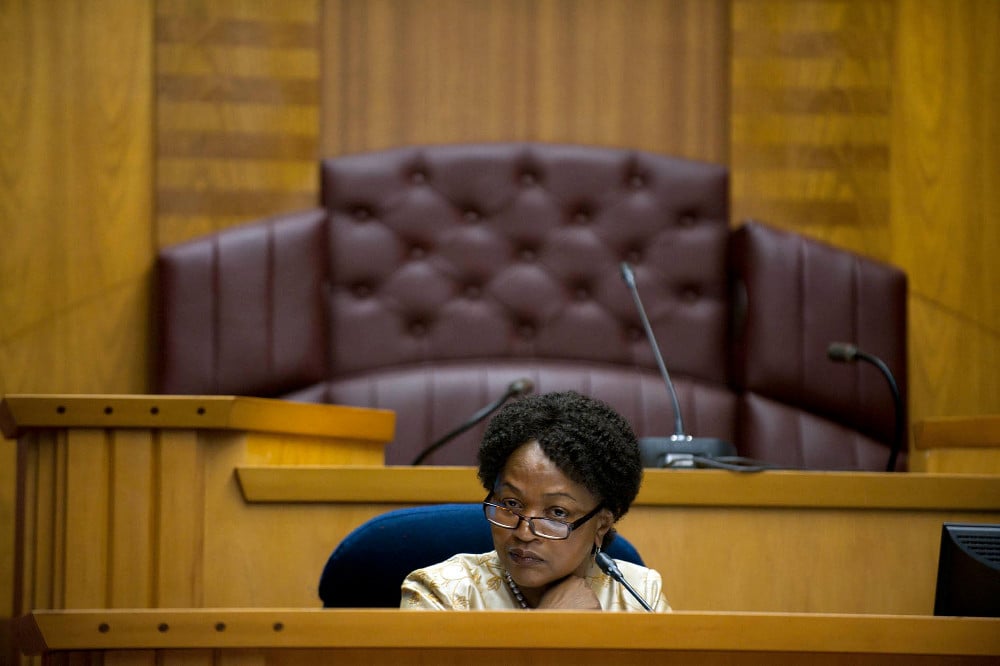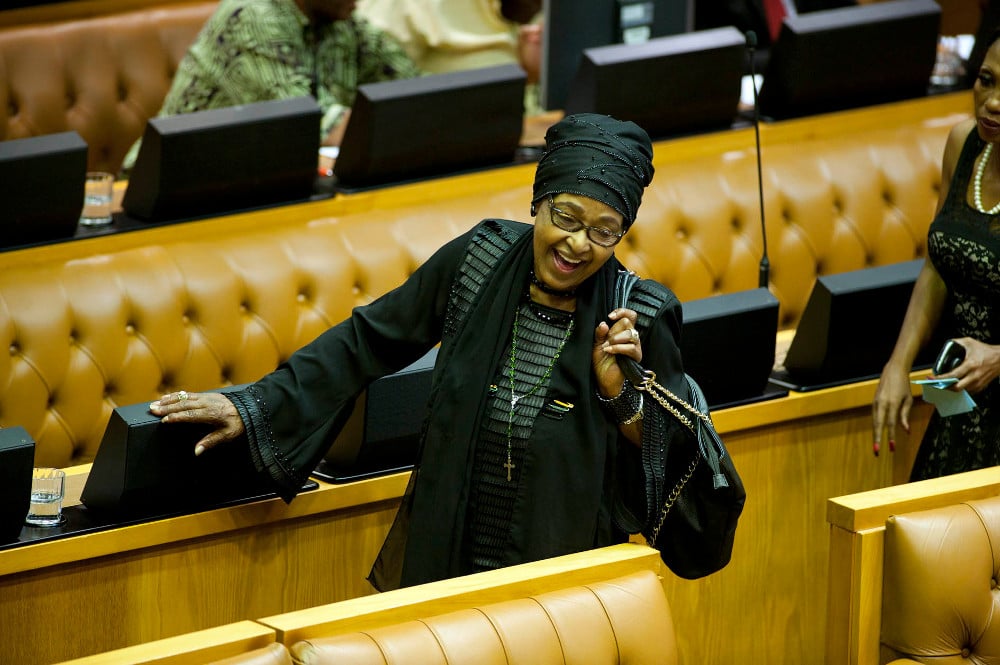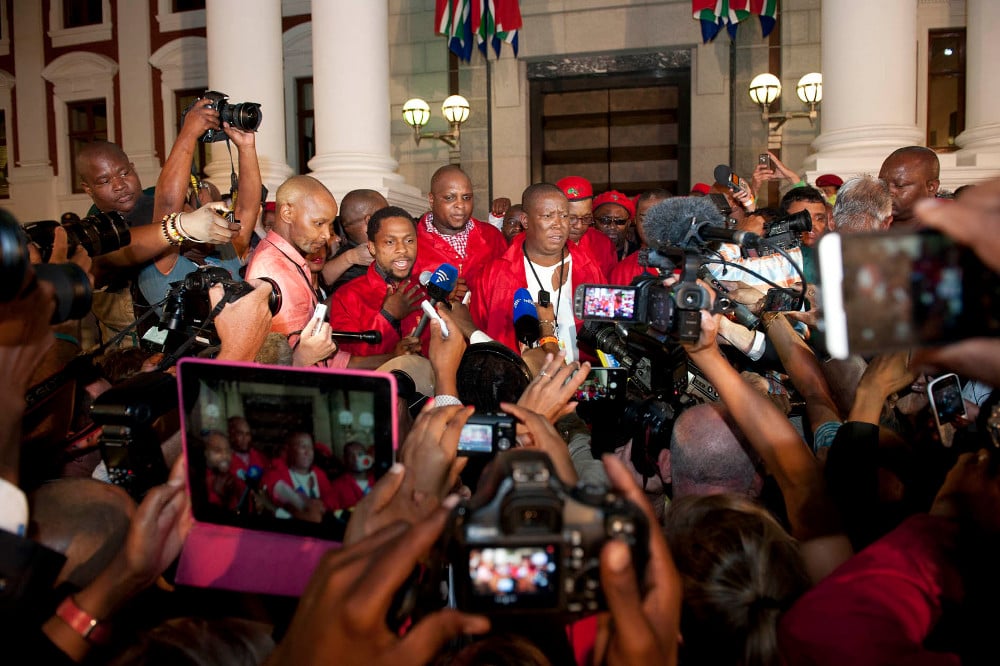Meetings Africa is a great platform for SMMEs, which allows them to increase their business footprint both locally and abroad
NEWS ANALYSIS
On March 12, Parliament failed to approve the R1.3-trillion government budget because MPs who attended the sitting did not form the necessary quorum for the vote. That budget – tabled by Finance Minister Nhlanhla Nene in February – was only passed five days later, on March 17.
Two weeks later, the ruling ANC convened its bimonthly national executive committee (NEC) meeting, where it addressed the poor attendance of its MPs. This, it said, has led to embarrassing incidents such as failing to pass budgets.
“The recent failure of the ANC to ensure a majority vote on a Bill was raised as a serious matter,” read minutes of the NEC meeting, which the Mail & Guardian has seen.
With the ANC holding 249 of the 400 National Assembly seats, the ruling party could have single-handedly passed the March budget, but only 189 MPs of all parties attended the sitting that needed 201 for a quorum. Some MPs from opposition parties were also absent.
ANC chief whip Stone Sizani told the media at the time that it was “an embarrassing situation”.
Such incidents have been cited by observers and those who have previously served as MPs as being among the reasons behind the apprent declining quality of Parliament’s work.
Signs of MPs taking their parliamentary duties lightly appeared during the fourth Parliament, but things seem to be worsening in the fifth Parliament. In 2013, for instance, Parliament failed to adopt the Labour Relations Amendment Bill, also because fewer MPs than expected – only 186 – had attended the session. At the March NEC meeting, the party leadership “commended progress in ensuring discipline and stability in the National Assembly”, but it also urged that “action be taken” against those who were absent from Parliament without giving valid reasons.
No decorum in the House
In addition to bunking Parliament, MPs are increasingly debating with less respect and diplomacy than they did previously.
Last week, former deputy president Kgalema Motlanthe, in a speech delivered during a debate with former president FW de Klerk on South Africa’s 21 years of democracy, deplored how the ANC treats the opposition in Parliament.
“I’m ashamed … when I see on TV from time to time members of my organisation addressing members from the opposition benches as people who have no right to express their honest views on any matter because they were liberated by us in the African National Congress,” he said. “I’m saying I’m ashamed … because that is factually incorrect. The liberation of this country was brought about by all South Africans of all colours, classes and shapes.”
One of the key matters that has resulted in confrontation between the ANC and opposition parties is the spending of state funds on upgrading President Jacob Zuma’s private home in Nkandla, KwaZulu-Natal. Parliamentary sittings where the issue has come up have often degenerated into screaming matches and on two occasions Economic Freedom Fighters MPs were kicked out of the house – including the violent incident in February during Zuma’s State of the Nation address.
During his response to the debate on the presidency budget vote on Wednesday, Zuma called on MPs to “take Parliament seriously”.
“I will be failing in my duty if I do not comment on how our democratic Parliament is conducting its business during this term. Members of Parliament must demonstrate that they take Parliament seriously, so that our people can continue to look up to this institution,” he said.
“The conduct of some [MPs] raises doubt about their commitment to the work of Parliament. I trust that the matters of decorum will be taken seriously so that we do not disappoint our people,” said Zuma.
Commenting on the continuous drama that has characterised the fifth Parliament so far, Democratic Alliance chief whip John Steenhuisen said: “I think this is the lowest point in the post-democratic history of this country. We’ve reached a crisis.”
Opposition not blameless
When Parliament is in session, the opposition MPs who choose to participate spend three to four days in the legislative capital preparing for and attending committee meetings as well as plenaries, with study groups in between.
And if they are passionate about a Bill or a cause, they make time to lobby fellow MPs and sweet-talk ruling party members into swinging votes because that is the only way opposition parties can ever hope to score a victory in Parliament.

Speaker Baleka Mbete has been slammed for being partisan. (Photos: David Harrison, M&G)
And some, including Agang SA’s Andries Tlouamma, just choose to show up occasionally, eat through the spread of yoghurts, fruit, biscuits, mini-sandwiches and cool drinks, and sit on their gadgets throughout the meeting before rushing off to their plush offices – even before the chairperson closes the meeting.
With more than 50 committee meetings each week and hundreds of government officials often grilled for hours on finances, service delivery, leadership squabbles and shoddy presentations, MPs believe that cronyism, ineffective committee chairs and late documentation make it difficult for them to do their jobs.
And should they dare speak against the committee they face serious censure, or a public dressing down, as DA communications spokesperson Gavin Davis found out in January when communications committee chair Joyce Moloi-Moropa and some MPs reprimanded him for speaking to the media about problems facing the public broadcaster’s board.
Silent and absent MPs
Whereas government officials are expected to be on their toes when they appear before Parliament, there is little accountability for MPs. It is up to the individual to decide whether they want to put in the work, according to Freedom Front Plus MP Pieter Groenewald.
“And some choose not to. Some people put in the work. They are prepared and ask the right questions. Some go with the flow and just sit there,” Groenewald said.
“There are MPs who have never even delivered a speech in Parliament or asked a question in committees and yet they continue to draw salaries. An example is Winnie [Madikizela-] Mandela, who has been an MP since 2009 and I have only seen her five times in the National Assembly. And there are a few [like her].”
There are extremely effective committees, however, such as those dealing with police, transport and telecommunications, which often send unprepared government officials packing. Police commissioner Riah Phiyega was one of its victims recently when, during a meeting on the police budget, she failed to explain adequately why she still did not have a chief financial officer.
Some committees, such as those handling defence and military veterans, agriculture and labour, are useless, according to opposition MPs.
“Defence is a disaster and, quite frankly, a waste of time as it is not even accountable. Most of the department heads who are supposed to give presentations never show up. During the budget review it sat only for two days with just the chief financial officer and a couple of other leaders, while the police committee sat for 10 days and even turned back the commissioner,” said an MP who requested anonymity.

Winnie Madikizela-Mandela has been accused of only pitching up for duty five times in six years.
MPs say their problems are exacerbated by the executive making last-minute cancellations or submitting documents late.
Committee chairs who refuse to allow opposition MPs the space to comment and always rule questions of out order also hamper Parliament’s work, said the DA’s Steenhuisen.
“The biggest frustration that members find is the late stuff that is laid on the table, or agendas that are changed last-minute. A good example was the interviews for the SABC board. They just dumped the CVs a day before and it makes it very difficult for MPs to properly engage with interviewees and do proper oversight when they haven’t had a chance to go through the documentation. So I’ve told all my members that unless it is a massively urgent matter, we must insist that committees don’t deal with those matters and move them to the following meeting to allow members to access documentation.”
Steenhuisen, who was a councillor for 10 years and has served as an MP for three and a half years, said the party has a blanket rule that 24 hours before a meeting is the last opportunity for departments and presenters to provide documents, otherwise they will “make noise about it”.
“The labour portfolio committee is particularly notorious for this. The chairperson constantly rules questions out of order, changes the programme at the last minute. Labour is probably among the most problematic. And then there is the joint standing committee on intelligence, which conducts its business in the most clandestine manner – it is very difficult to drive proper oversight there when the goalposts keep moving and the times keep changing.”
However, Steenhuisen said the fifth Parliament seems to be working to reverse the deterioration experienced in the past few years, and that this is partly owed to the first-time entrance of the Economic Freedom Fighters.
“What we have seen in the fifth Parliament are members who do not accept everything. Parliament is once again the focus, with healthy debates, and I believe due to this we need to be more relevant to current affairs. We need to debate issues that affect people at different times.”
Congress of the People chief whip Deidre Carter said, in the previous Parliament, MPs sleeping through meetings, coming in unprepared or not showing up at all were some of the major issues they had to deal with, but it all seems to be changing.
“I have seen quite a shift on this fifth Parliament. For example, in the transport committee every MP, from the ANC to the Democratic Alliance and us [Cope] who are representing the 10 other parties, all seem to be preparing in advance.
“There are also other committees, though, where I have gone in and there is an Act or Bill being discussed and everyone is just going: ‘Yes, yes.’ You come in as an alternative member and you ask if they realise how the Bill is going to affect the House of Traditional Leaders, for example. Some of the committees are well balanced; some are not.”

The Economic Freedom Fighters have, many agree, helped revive opposition politics in Parliament.
Carter said the effectiveness of any committee is largely determined by who chairs it.
“Once you’ve got a strong chairperson, there is actually a strong team of members working together and where you have a weak chairperson, it seems like the whole committee deteriorates and falls to pieces.”
The ANC, as the majority party, appoints portfolio committee chairs.
Former ANC MP Ben Turok – who served in Parliament for 20 years until last year – painted a picture of decline in the quality of the work MPs produce, which he attributed to boredom with the passing of legislation, not taking Parliament seriously and poor attendance.
“Gradually, over the years, the excitement of Parliament has faded. It is now a routine operation. The ANC is in power for 20 years, MPs go through motion of passing legislation – which they find boring,” he said.
Turok said the chief whips of each party and the whips in each committee need to enforce discipline, but many fail to do so for fear of becoming unpopular within their party.
“They are not taken seriously or do not exert their authority because they fear they will be removed,” he said.
The most serious challenge facing Parliament, Turok said, is speaker Baleka Mbete’s partisan nature as she is an office bearer of the ANC, a notion shared by opposition parties.
“Increasingly, there is a contradiction between her two posts [National Assembly speaker and ANC chairperson]. You cannot have the speaker say that there are MPs who are plotting against the president and then in the house she has to preside over these same MPs,” he said.
Turok said the frequent disruptions by the EFF are a major problem and can only be solved through “mature, political discussion”.
He added: “One of the biggest problems of the ANC is that the opposition is now united. That is a threat for the party,” he said.
EFF MP Mbuyiseni Ndlozi said the party has a small team of passionate and dedicated MPs who ensure it is prepared for each committee and plenary. He said the EFF insists on accountability.
“It is our mastery of rules and being unable to accept easy and unjust rulings [that makes a difference]. Also, our sharp interpretations [of the workings of Parliament] and being the first openly socialist party in Parliament.”
Charge of the red brigade
Ndlozi said the ruling party has not been challenged ideologically since 1994 and that the EFF is keeping ministers and MPs on their toes.
“Our absolute commitment to the working class is what allows us to interrogate the rules of Parliament and the legislature.”
Malema recently said Parliament is no longer boring since the EFF made its debut. “The EFF will continue to make you proud in Parliament … We will continue to speak the truth. We are not scared of Zuma, police or military. Parliament must never be a rubber stamp of the ANC. Whether they like it or not … EFF is going to be there for the next five years.”
The poor functioning of Parliament has led either to poorly drafted legislation or delays in completing the drafting of laws. Some of the crucial Bills outstanding for various reasons include the Mineral and Petroleum Resources Development Amendment Act, which Zuma returned to the National Assembly in January because it did not “pass constitutional muster”. The Medicines and Related Substances Amendment Bill lapsed because it was not finalised by the end of last year. It was revived by the current Parliament.
There are also controversial Bills that have been approved by Parliament but are still sitting on Zuma’s desk awaiting his signature, because their constitutional status is debatable. The Protection of State Information Bill, known as the secrecy Bill, passed in 2013, and the Private Security Industry Regulation Amendment Bill, passed last year, are both awaiting Zuma’s go-ahead.
The ANC has six members in each committee in Parliament, and ANC deputy chief whip Doris Dlakude says all are expected to attend meetings or face disciplinary hearings.
“We have a chairperson and a whip who must ensure that all members of the ANC are in that committee. When a department sends them information the day before a presentation, they must read [it], do their own research and try their level best to be ready for each. The whip in the committee will make sure that all members will sign the register, just to ensure that we don’t have people who are absent almost all the time.”
Dlakude, who has been an MP since 2010, said it isn’t enough for members just to attend: they have to participate. “They can’t sit there and be zombies.”
She said members are encouraged to deal with the presentations at hand at plenaries and committees and “not entertain opposition party rumours that might derail them”.
On other parties blaming chairs for weak committees, Dlakude said it is untrue that they were not given the chance to make their points.
“The opposition parties like to complain about things that are not there. They are given equal opportunities in committees.”